
Ouch, I thought. That’s gonna hurt.
I let my arms hang to the side in a cross position as I lay on the bench, a five pound dumbbell in each hand. I’d had rotator cuff surgery back in May, and my biceps tendon is irritated. That, and I haven’t been at the gym since the last week of October. This light, gentle stretch was just the beginning of getting back into the habit.
Since Halloween, I hiked a very large mountain in Africa. That was pretty intense. Then I rode horses for a solid week, four hours a day. Where I was had no gym, no facilities, not even running water or electricity. It was, in fact, a perfect way to rest the legs that had just done such an extraordinary job of taking me up Mt. Kenya.
It was also the perfect opportunity to test out what happens when you take an extended rest from regular workouts. I’d pulled a few muscles, my left hip had developed arthritis, and in many ways, my body was asking for a break.

But how long is too long?
Retirement has always and forever been couched as a time of well-deserved rest after a lifetime of work. Sit in your easy chair or rocker out on the front porch and watch life go by. In this charming article about how it all began, https://www.nytimes.com/1999/03/21/jobs/the-history-of-retirement-from-early-man-to-aarp.html, author Mary-Lou Weisman offers up that while we did not want to “go quietly into that good night,” by god someone had to force us oldies to get the hell out of the way of younger folk who needed work and had families to support.
As though grandparents weren’t doing that very thing right now, as it were.
In other words, put more honestly, you deserve the rest is marketing-speak for GET THE HELL OUT OF THE WAY, YOU OLD FART.

When I spent a month in Vietnam, one thing that struck me was that the grandparents, stooped from years of working in the rice fields, were still working full time. They couldn’t imagine not being active. After all, rice had to be planted, harvested, sold, cooked, eaten. Work gives our life purpose. When we stop, we start to die- especially when that work involves physical labor. When we moved wholesale from an agricultural economy to industry and now to an information economy, we lost the physical labor part of the work equation for a huge swath of the population. Used to be we figured that with more free time, folks would get outside more. Play.
Um, we didn’t. We continue to spend our intellectual capital on more stupid machines and products which reinforce our laziness and inactivity in the name of convenience. Convenience is killing us, frankly, especially those who have grown up in this information economy and have never stepped inside a barn, much less plowed a field. I have. And in some ways I really miss it.
Well, the problem is that Baby Boomers today not only have no intention of slowing down, they also resist retirement. At nearly 66, I can’t even spell retirement. What I do for a living (writing, speaking and adventure travel) is not only stupid fun, but I’m only now hitting my stride. Besides, I don’t have a trust fund, and still have bills. How annoying.
The body does age, however, and it requires maintenance, especially if I intend to drag my carcass into parts unknown and make wholly unnecessary demands of it in the name of fun. What I wanted to know was how long could I take a break before I began to break down?

Turns out, not long.
I’m a lifelong bodybuilder, and have been pretty good at developing habits around both strength and cardiovascular training. Being ex-military helps, as those habits require discipline. It’s not just that I feel better and look better when I consistently exercise. It’s that research shows that it really is the fountain of youth, and if I think I’m going to keep on climbing mountains and riding horses and kayaking and all the other things I love to do well into my 90s, then I probably better keep on pushing myself.
Conventional wisdom used to posit that it takes about 21 days to create a habit. More recent research says otherwise (https://examinedexistence.com/how-long-does-it-take-for-something-to-become-a-habit/), say, more like about 66 days. Depends on the person, and of course, the habit. Exercise being a rather difficult one. Stopping exercise is one heck of a lot easier.
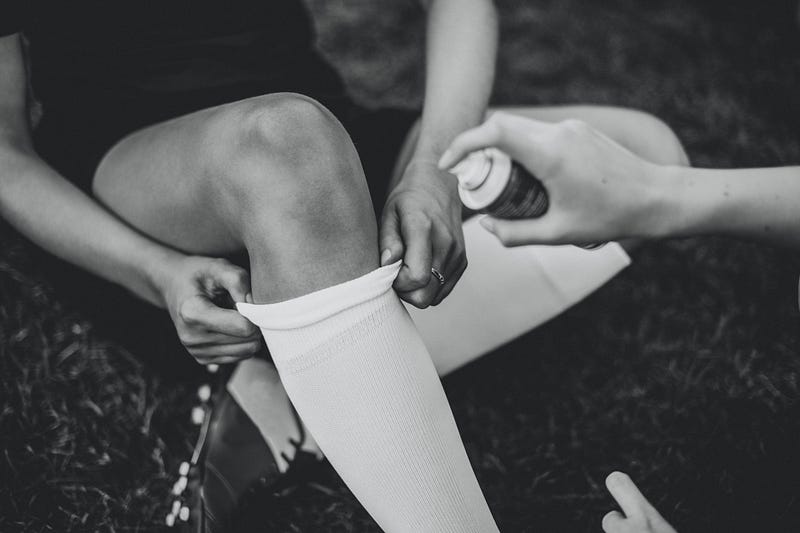
At first, because I was in real pain, having a chance to sit for hours each day just watching the waves roll in off the eastern coast of Madagascar helped me get the arthritic pain in my left hip under control. I loved the opportunity to spend a full day reading, petting the local stray dogs and just being for a change. The pain receded, and I enjoyed the purity of relaxation.
Once I got back to America, though, I was buried in Christmas preparations. I found it a little challenging to organize my days around workouts again. I brought plenty of workout gear to my friend’s house here in Spokane with the full intention of throwing myself right back into the gym.
But I didn’t. Turns out that once I got into the habit of not exercising, it was a challenge to get back. Worse, my body, honed by years of regular work, wasn’t happy about it. I began to hurt in places that I’ve never hurt before. Parts I didn’t even know I possessed barked at me like a junkyard dog. I had pain because I sat too much, rather than from extreme exercise.
Meanwhile I was enjoying seasonal treats, which I rarely eat. Not only was I not exercising regularly, I was eating foods that my body doesn’t normally process. The two insults combined to create a mutiny.
By the beginning of the fourth week, I could see looseness in the powerful muscles of my thighs. My arms began to develop that annoying flap that women over a Certain Age hide with long sleeves. I developed a little padding around my stomach, which is usually drum tight. Look, I love eggnog. And gulped it down with gusto. At 180 calories for half a cup, I was pounding down far more than my non-exercising body could process. So, the dense cream settled in for the long haul. I began to look doughy.
This is called feedback.

This past year, I had to give up my upper body workout due to rotator cuff surgery. That procedure cost me at least half an inch of solid muscle on my right deltoid, and left me with a chicken wing compared to my left arm. It’s taken me untold hours to get those muscles back. Now I was watching just how swiftly the rest of the body can fall into disrepair when we hang up our running shoes and workout gloves. I lost the definition on my triceps, and those powerful lines in my legs receded.
Is all lost?
As my sports chiropractor pointed out, the bank of muscles I’ve built over the 45 years in the gym haven’t gone away. We hear about “muscle memory” https://medium.com/oxford-university/the-amazing-phenomenon-of-muscle-memory-fb1cc4c4726, which serves as a near-guarantee that we can indeed reclaim what we once built.
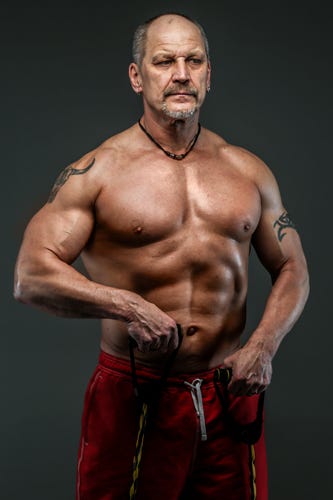
Depending on what kind of athlete you are, you lose both strength and endurance but at varying paces. If you’re in superb shape, you can likely hang out for a while on the beach like I did for up to about three weeks or so before the body starts to decline (https://greatist.com/how-long-lose-your-fitness). It’s probably a good idea for me to get busy now — I was back at the gym early yesterday morning- before my body gets the inevitable message that it no longer needs that muscle or the endurance I so carefully built.
If you’re an older athlete like I am, you will lose your strength and endurance faster. Aye, there’s the rub. In this NIH study, it showed that older folks can decline rapidly if we buy into a retirement mentality that says we deserve lots and lots of rest.
Frankly, nonsense. What the NIH study proves is that aging is a fitness test.
In the 2012 James Bond movie Skyfall, Bond is shot by another agent and disappears, having been assumed dead. He’s actually lazing around in some tropical paradise, getting drunk and laid (probably in that order). When an explosion at MI-6 Headquarters in London brings him back, M puts him through his tests which he has to pass to return to the field. In one scene, Bond collapses to the floor after his fitness training. Baby, I can relate:
While Bond fails his tests miserably, he does regain his fitness. It’s fair to assume that he’s in his thirties in the movie. He’s actually 50 (and thank you, a FINE fifty). That washboard gut doesn’t come from pills.
After 90 minutes at the gym yesterday after a good long period off, my body is going to bark loudly at me tomorrow. I expect and welcome it, as that’s a sign that I targeted the areas I want to regain their strength and size. While a part of me rather liked the long layover, the body didn’t. It wants work, and lots of it. The feeling of self-powered wind in my face during a run, the pounding of a healthy heart, the feel of my lungs expanding to the max. The strength in my arms and legs as I climb steps or lift heavy weights. There is deep, abiding satisfaction when the body performs as designed. You and I do not have to swiftly deteriorate. We have options.
Good thing, because we are up against considerable enemies.
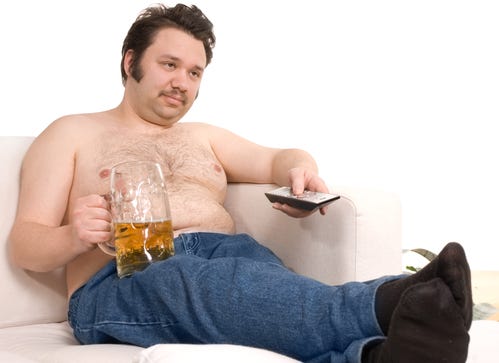
Sarcopenia, or age-related muscle loss, begins about the time Mama Nature has decided we’re past our best breeding age. Say, about thirty. You can plan to lose 3–5% of your muscle mass every decade, which explains why what used to be on your shoulders and biceps tends to disappear, as your belly expands. Muscle doesn’t turn into fat. It simply disappears with lack of use. If you add to that copious amounts of pizza and beer combined with endless TV time, then the growing continent below your chest shouldn’t surprise you in the least. It is, however, remarkably avoidable.
The same thing happens with our lung capacity. While our lung performance decreases naturally as we age, recent studies have shown that if you and I pound the pavement regularly we can, at 75, have the healthy lungs of a 40-year-old (https://www.npr.org/sections/health-shots/2018/12/10/674380082/exercise-wins-fit-seniors-can-have-hearts-that-look-30-years-younger).
My father was extremely proud of his athletic body in his youth. Unfortunately he developed some bad habits, namely smoking and drinking, which worked to undermine his future. By the time he reached his sixties, smoking had decimated his lungs. He quit, but turned to candies to control his habit. His belly expanded, in part due to the fact that he no longer worked on a farm. By the time he reached his late seventies he was deeply unhappy with his shape.
One night he approached me about what to do. I was a dedicated bodybuilder by then, and he rather envied the tight muscles I’d developed and that he had lost. He asked me what it would take to get rid of that belly.
He didn’t like the answer. Most older folks don’t. And by older, these days I’m including people over fifty. There’s been a marked increase in difficulty with daily tasks (even walking across a living room) among folks in their fifties, which is a direct result of lifestyle choices, overuse of OTC drugs and our tendency to demand that our docs ply us with the latest wonder drug. In other words, a pill to give us health.
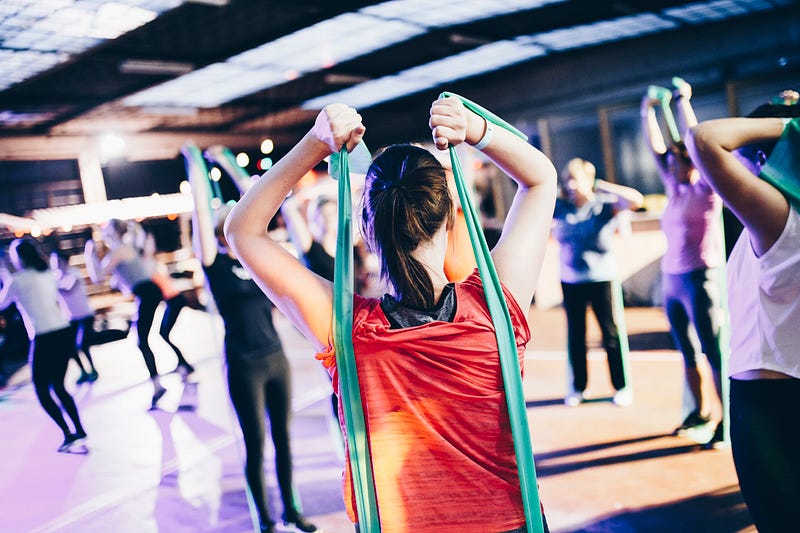
There are only two true wonder drugs: exercise and proper nutrition. If you and I were to throw ourselves into both, most of us wouldn’t need pharmaceuticals at all. But those take work.
The work that I happily took back up yesterday morning, to invite the doughiness to depart (which it swiftly will, thankyouverymuch). As much as parts of me hurt yesterday and most certainly will later this week, it’s all part of the process. With me at the gym before 7 am was a contingent of aging men and women. The guys all looked military. These men’s flat bellies and powerful shoulders all spoke to that same discipline I learned as a soldier.
That discipline also helps me grab the banana instead of the banana cream pie, my favorite, on the kitchen counter. I like my tiny waist and I will by god get it back.
None of that comes in a bottle. Bragging rights come with hard work.
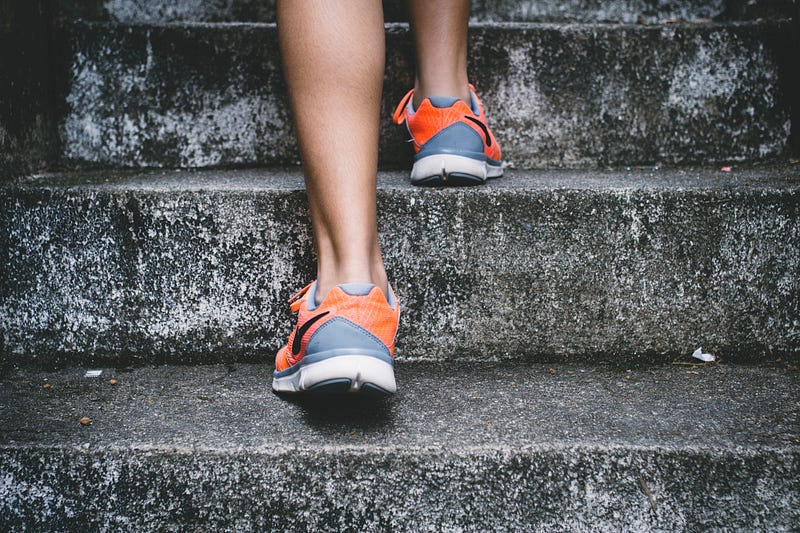
We just need to get after it, daily, and with a combination of humor, affection and endless patience.
Besides, there are very good reasons to want to stay vital, because many of us don’t have the slightest notion of what we want to be when we grow up until we’re well past forty. For a lot of us, that can be terrific news: https://www.inc.com/bill-murphy-jr/14-inspiring-people-who-found-crazy-success-later-in-life.html. I particularly love that Samuel Jackson, who suffered from cocaine and heroin addiction, has become one of our most visible actors, as well as a highly-paid spokesperson for Capital One. He didn’t even begin until he was 46.
Are you saving up for old age? It’s never too late to start. If your entire life has been a vacation from exercise, it might take some doing. Look, if Bond can make a comeback, so can we.
In two days, it will be Christmas. The folks at that gym have been going all year. Is this the year you will stick it out for all twelve months? The results may surprise you. But you’ll never know unless you try.
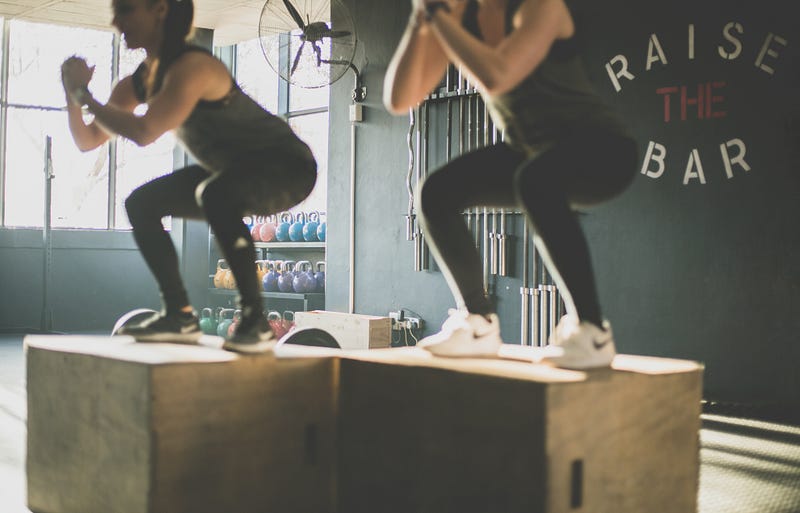
By Julia E Hubbel on December 23, 2018.
Exported from Medium on December 8, 2020.

What a Month Off Workouts Taught Me About My Aging Body
Ouch, I thought. That’s gonna hurt.
I let my arms hang to the side in a cross position as I lay on the bench, a five pound dumbbell in each hand. I’d had rotator cuff surgery back in May, and my biceps tendon is irritated. That, and I haven’t been at the gym since the last week of October. This light, gentle stretch was just the beginning of getting back into the habit.
Since Halloween, I hiked a very large mountain in Africa. That was pretty intense. Then I rode horses for a solid week, four hours a day. Where I was had no gym, no facilities, not even running water or electricity. It was, in fact, a perfect way to rest the legs that had just done such an extraordinary job of taking me up Mt. Kenya.
It was also the perfect opportunity to test out what happens when you take an extended rest from regular workouts. I’d pulled a few muscles, my left hip had developed arthritis, and in many ways, my body was asking for a break.

But how long is too long?
Retirement has always and forever been couched as a time of well-deserved rest after a lifetime of work. Sit in your easy chair or rocker out on the front porch and watch life go by. In this charming article about how it all began, https://www.nytimes.com/1999/03/21/jobs/the-history-of-retirement-from-early-man-to-aarp.html, author Mary-Lou Weisman offers up that while we did not want to “go quietly into that good night,” by god someone had to force us oldies to get the hell out of the way of younger folk who needed work and had families to support.
As though grandparents weren’t doing that very thing right now, as it were.
In other words, put more honestly, you deserve the rest is marketing-speak for GET THE HELL OUT OF THE WAY, YOU OLD FART.

When I spent a month in Vietnam, one thing that struck me was that the grandparents, stooped from years of working in the rice fields, were still working full time. They couldn’t imagine not being active. After all, rice had to be planted, harvested, sold, cooked, eaten. Work gives our life purpose. When we stop, we start to die- especially when that work involves physical labor. When we moved wholesale from an agricultural economy to industry and now to an information economy, we lost the physical labor part of the work equation for a huge swath of the population. Used to be we figured that with more free time, folks would get outside more. Play.
Um, we didn’t. We continue to spend our intellectual capital on more stupid machines and products which reinforce our laziness and inactivity in the name of convenience. Convenience is killing us, frankly, especially those who have grown up in this information economy and have never stepped inside a barn, much less plowed a field. I have. And in some ways I really miss it.
Well, the problem is that Baby Boomers today not only have no intention of slowing down, they also resist retirement. At nearly 66, I can’t even spell retirement. What I do for a living (writing, speaking and adventure travel) is not only stupid fun, but I’m only now hitting my stride. Besides, I don’t have a trust fund, and still have bills. How annoying.
The body does age, however, and it requires maintenance, especially if I intend to drag my carcass into parts unknown and make wholly unnecessary demands of it in the name of fun. What I wanted to know was how long could I take a break before I began to break down?

Turns out, not long.
I’m a lifelong bodybuilder, and have been pretty good at developing habits around both strength and cardiovascular training. Being ex-military helps, as those habits require discipline. It’s not just that I feel better and look better when I consistently exercise. It’s that research shows that it really is the fountain of youth, and if I think I’m going to keep on climbing mountains and riding horses and kayaking and all the other things I love to do well into my 90s, then I probably better keep on pushing myself.
Conventional wisdom used to posit that it takes about 21 days to create a habit. More recent research says otherwise (https://examinedexistence.com/how-long-does-it-take-for-something-to-become-a-habit/), say, more like about 66 days. Depends on the person, and of course, the habit. Exercise being a rather difficult one. Stopping exercise is one heck of a lot easier.

At first, because I was in real pain, having a chance to sit for hours each day just watching the waves roll in off the eastern coast of Madagascar helped me get the arthritic pain in my left hip under control. I loved the opportunity to spend a full day reading, petting the local stray dogs and just being for a change. The pain receded, and I enjoyed the purity of relaxation.
Once I got back to America, though, I was buried in Christmas preparations. I found it a little challenging to organize my days around workouts again. I brought plenty of workout gear to my friend’s house here in Spokane with the full intention of throwing myself right back into the gym.
But I didn’t. Turns out that once I got into the habit of not exercising, it was a challenge to get back. Worse, my body, honed by years of regular work, wasn’t happy about it. I began to hurt in places that I’ve never hurt before. Parts I didn’t even know I possessed barked at me like a junkyard dog. I had pain because I sat too much, rather than from extreme exercise.
Meanwhile I was enjoying seasonal treats, which I rarely eat. Not only was I not exercising regularly, I was eating foods that my body doesn’t normally process. The two insults combined to create a mutiny.
By the beginning of the fourth week, I could see looseness in the powerful muscles of my thighs. My arms began to develop that annoying flap that women over a Certain Age hide with long sleeves. I developed a little padding around my stomach, which is usually drum tight. Look, I love eggnog. And gulped it down with gusto. At 180 calories for half a cup, I was pounding down far more than my non-exercising body could process. So, the dense cream settled in for the long haul. I began to look doughy.
This is called feedback.

This past year, I had to give up my upper body workout due to rotator cuff surgery. That procedure cost me at least half an inch of solid muscle on my right deltoid, and left me with a chicken wing compared to my left arm. It’s taken me untold hours to get those muscles back. Now I was watching just how swiftly the rest of the body can fall into disrepair when we hang up our running shoes and workout gloves. I lost the definition on my triceps, and those powerful lines in my legs receded.
Is all lost?
As my sports chiropractor pointed out, the bank of muscles I’ve built over the 45 years in the gym haven’t gone away. We hear about “muscle memory” https://medium.com/oxford-university/the-amazing-phenomenon-of-muscle-memory-fb1cc4c4726, which serves as a near-guarantee that we can indeed reclaim what we once built.

Depending on what kind of athlete you are, you lose both strength and endurance but at varying paces. If you’re in superb shape, you can likely hang out for a while on the beach like I did for up to about three weeks or so before the body starts to decline (https://greatist.com/how-long-lose-your-fitness). It’s probably a good idea for me to get busy now — I was back at the gym early yesterday morning- before my body gets the inevitable message that it no longer needs that muscle or the endurance I so carefully built.
If you’re an older athlete like I am, you will lose your strength and endurance faster. Aye, there’s the rub. In this NIH study, it showed that older folks can decline rapidly if we buy into a retirement mentality that says we deserve lots and lots of rest.
Frankly, nonsense. What the NIH study proves is that aging is a fitness test.
In the 2012 James Bond movie Skyfall, Bond is shot by another agent and disappears, having been assumed dead. He’s actually lazing around in some tropical paradise, getting drunk and laid (probably in that order). When an explosion at MI-6 Headquarters in London brings him back, M puts him through his tests which he has to pass to return to the field. In one scene, Bond collapses to the floor after his fitness training. Baby, I can relate:
While Bond fails his tests miserably, he does regain his fitness. It’s fair to assume that he’s in his thirties in the movie. He’s actually 50 (and thank you, a FINE fifty). That washboard gut doesn’t come from pills.
After 90 minutes at the gym yesterday after a good long period off, my body is going to bark loudly at me tomorrow. I expect and welcome it, as that’s a sign that I targeted the areas I want to regain their strength and size. While a part of me rather liked the long layover, the body didn’t. It wants work, and lots of it. The feeling of self-powered wind in my face during a run, the pounding of a healthy heart, the feel of my lungs expanding to the max. The strength in my arms and legs as I climb steps or lift heavy weights. There is deep, abiding satisfaction when the body performs as designed. You and I do not have to swiftly deteriorate. We have options.
Good thing, because we are up against considerable enemies.

Sarcopenia, or age-related muscle loss, begins about the time Mama Nature has decided we’re past our best breeding age. Say, about thirty. You can plan to lose 3–5% of your muscle mass every decade, which explains why what used to be on your shoulders and biceps tends to disappear, as your belly expands. Muscle doesn’t turn into fat. It simply disappears with lack of use. If you add to that copious amounts of pizza and beer combined with endless TV time, then the growing continent below your chest shouldn’t surprise you in the least. It is, however, remarkably avoidable.
The same thing happens with our lung capacity. While our lung performance decreases naturally as we age, recent studies have shown that if you and I pound the pavement regularly we can, at 75, have the healthy lungs of a 40-year-old (https://www.npr.org/sections/health-shots/2018/12/10/674380082/exercise-wins-fit-seniors-can-have-hearts-that-look-30-years-younger).
My father was extremely proud of his athletic body in his youth. Unfortunately he developed some bad habits, namely smoking and drinking, which worked to undermine his future. By the time he reached his sixties, smoking had decimated his lungs. He quit, but turned to candies to control his habit. His belly expanded, in part due to the fact that he no longer worked on a farm. By the time he reached his late seventies he was deeply unhappy with his shape.
One night he approached me about what to do. I was a dedicated bodybuilder by then, and he rather envied the tight muscles I’d developed and that he had lost. He asked me what it would take to get rid of that belly.
He didn’t like the answer. Most older folks don’t. And by older, these days I’m including people over fifty. There’s been a marked increase in difficulty with daily tasks (even walking across a living room) among folks in their fifties, which is a direct result of lifestyle choices, overuse of OTC drugs and our tendency to demand that our docs ply us with the latest wonder drug. In other words, a pill to give us health.

There are only two true wonder drugs: exercise and proper nutrition. If you and I were to throw ourselves into both, most of us wouldn’t need pharmaceuticals at all. But those take work.
The work that I happily took back up yesterday morning, to invite the doughiness to depart (which it swiftly will, thankyouverymuch). As much as parts of me hurt yesterday and most certainly will later this week, it’s all part of the process. With me at the gym before 7 am was a contingent of aging men and women. The guys all looked military. These men’s flat bellies and powerful shoulders all spoke to that same discipline I learned as a soldier.
That discipline also helps me grab the banana instead of the banana cream pie, my favorite, on the kitchen counter. I like my tiny waist and I will by god get it back.
None of that comes in a bottle. Bragging rights come with hard work.

We just need to get after it, daily, and with a combination of humor, affection and endless patience.
Besides, there are very good reasons to want to stay vital, because many of us don’t have the slightest notion of what we want to be when we grow up until we’re well past forty. For a lot of us, that can be terrific news: https://www.inc.com/bill-murphy-jr/14-inspiring-people-who-found-crazy-success-later-in-life.html. I particularly love that Samuel Jackson, who suffered from cocaine and heroin addiction, has become one of our most visible actors, as well as a highly-paid spokesperson for Capital One. He didn’t even begin until he was 46.
Are you saving up for old age? It’s never too late to start. If your entire life has been a vacation from exercise, it might take some doing. Look, if Bond can make a comeback, so can we.
In two days, it will be Christmas. The folks at that gym have been going all year. Is this the year you will stick it out for all twelve months? The results may surprise you. But you’ll never know unless you try.

Comments powered by Talkyard.